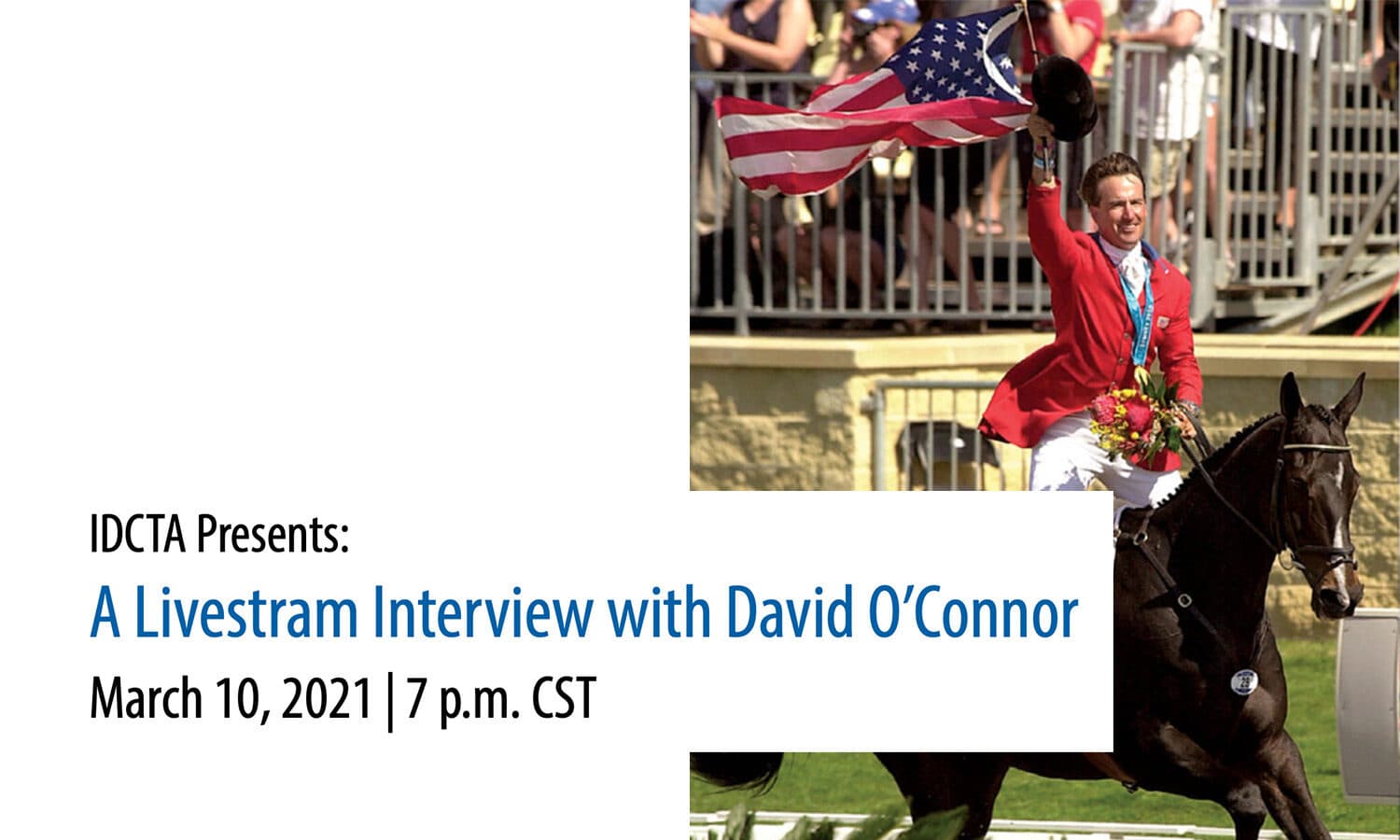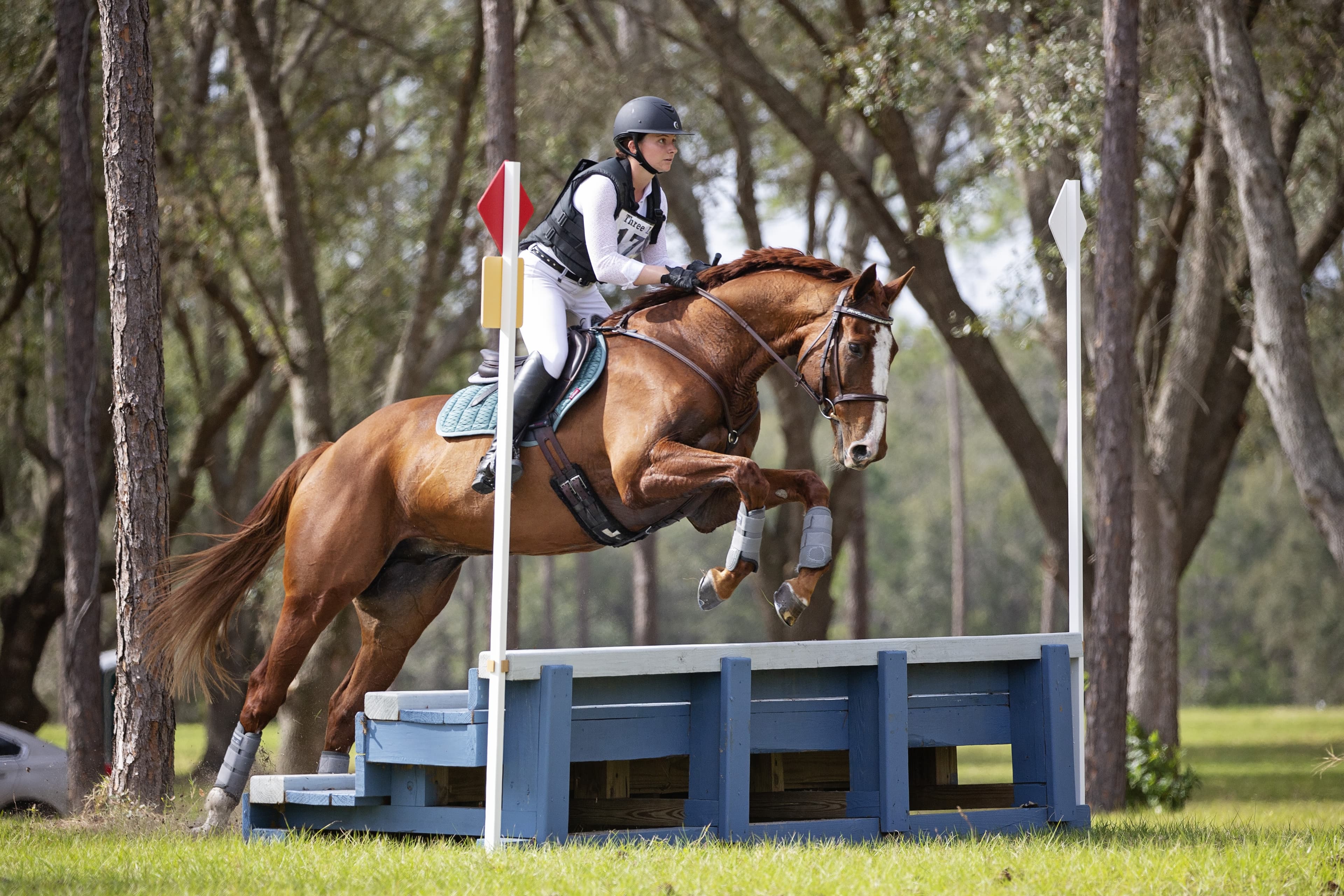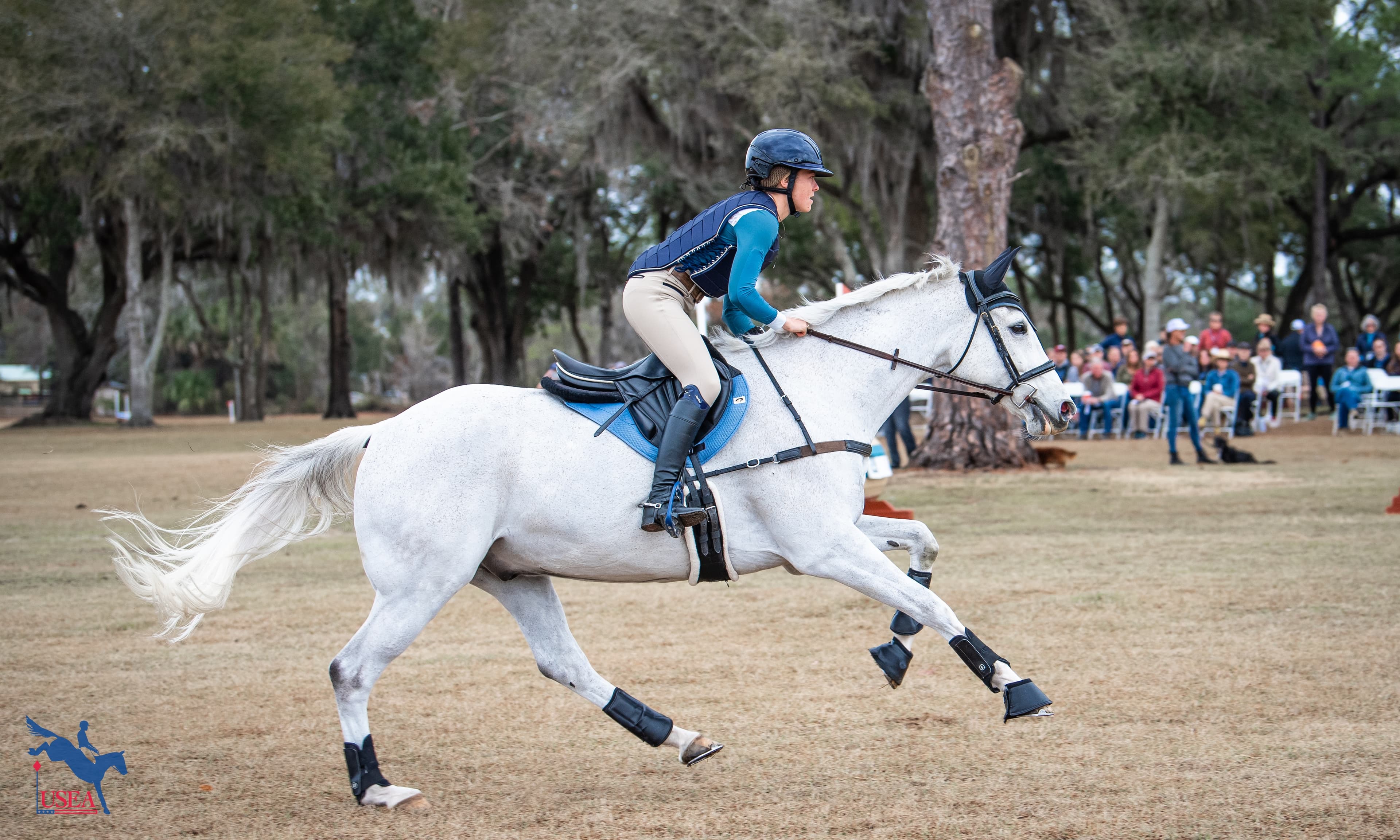IDCTA Presents: A Live Stream with David O'Connor

On Wednesday, March 10, 2021 at 7:00 p.m. Central time, join Eric Dierks for a live stream interview with David O'Connor.
David was an alternate for the 1988 Summer Olympics, and riding Wilton Fair, was part of the U.S. team at the 1990 World Equestrian Games, where he placed 35th individually and the team finished fourth. At the 1994 World Equestrian Games, he placed 44th individually riding On a Mission and was also an alternate for the team. At the 1996 Summer Olympics in Atlanta, David finished fifth individually riding Custom Made and he also helped the team to a silver medal with Giltedge.
At the 2000 Summer Olympics, again riding Custom Made, he won the individual gold medal and helped the U.S. team to a bronze medal aboard Giltedge. During the individual competition at the 2000 Games, he led each stage of the event, and made Olympic history with a record-breaking dressage score. David and Custom Made won the 1997 Badminton CCI4* (now CCI5*-L), becoming only the second American rider to do so. In the 1998 World Equestrian Games with Giltedge, he finished sixth and helped the U.S. team to fourth place. Also with Giltedge, David won silver at the 1999 Pan American Games and contributed to the U.S. team’s gold medal performance. The pair also won team gold at the 2002 World Equestrian Games in Jerez, Spain.
David was consistently ranked as one of the top three-day event riders in the world by the FEI with a first place in 2000, third in 1997, and fourth in 1996. He was also the top eventing rider in the U.S., topping the USEA leaderboard in 1998 and 1999. He was a three-time winner of the Kentucky Three-Day Event; once at the CCI4* (now CCI5*-L) and twice at the CCI3* (now CCI4*-L) level.
Four horses ridden by David - Giltedge, Custom Made, On a Mission, and Wilton Fair - have held positions on the list of the top 50 USEA high-scoring horses.
In 2004, David retired from competition to focus on other aspects of the sport, taking on administrative and coaching roles as well as being a three- and four-star course designer. He was an FEI Bureau member from 2008-2011 and served as the President of the United States Equestrian Federation (USEF) from 2004 to 2012. In 2006, David was appointed the International Technical Advisor to the Canadian national eventing team. In that capacity, he led the team to silver medals at the 2007 Pan American Games and the 2010 FEI World Equestrian Games. In January 2013, David left the Canadian team after being appointed chef d’équipe to the USEF eventing team.
Click here to register for the live stream interview.
This live stream is provided by the Illinois Dressage and Combined Training Association.















